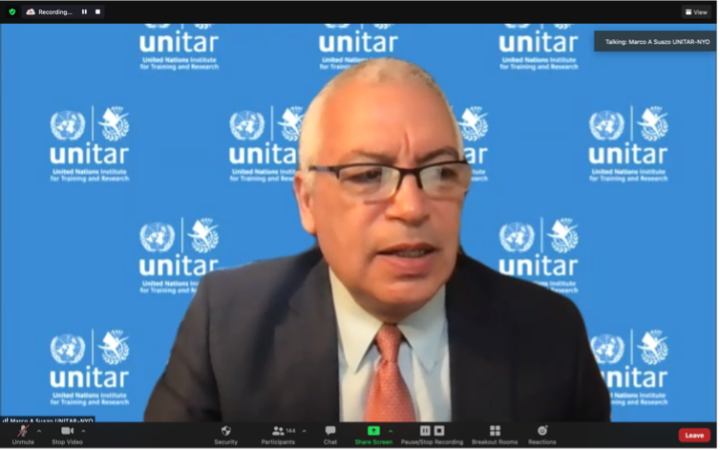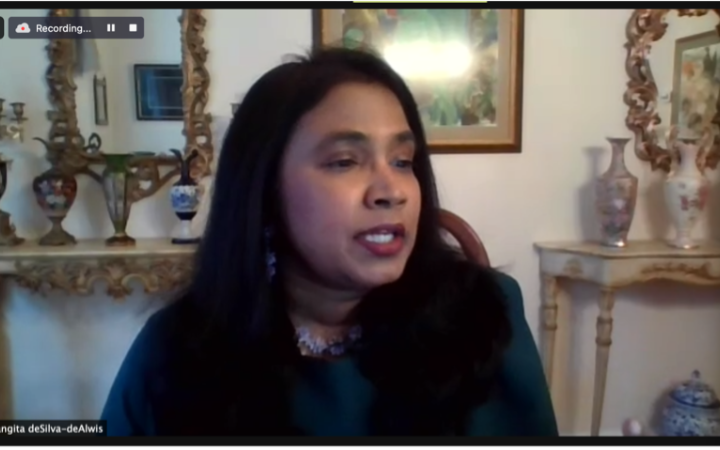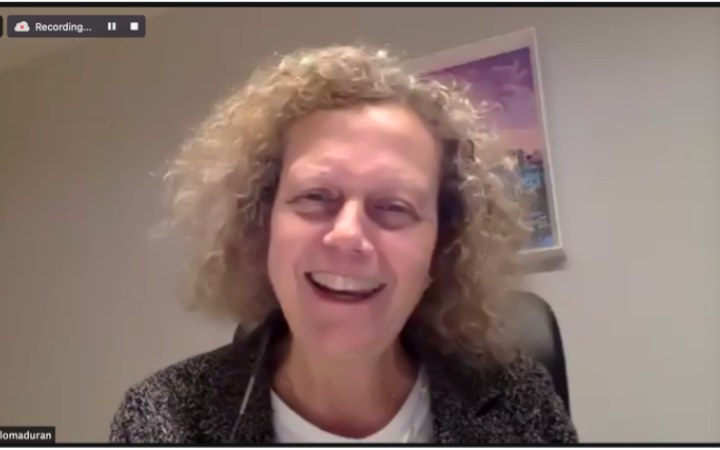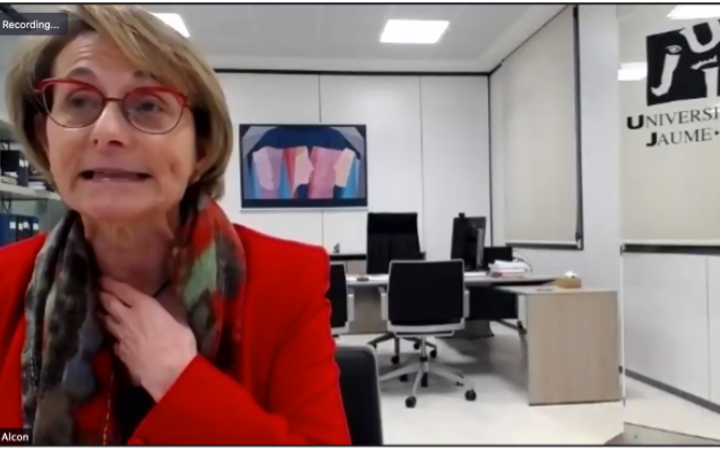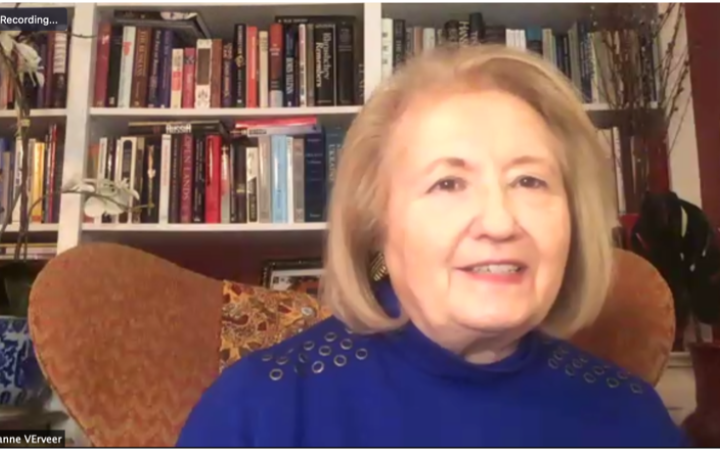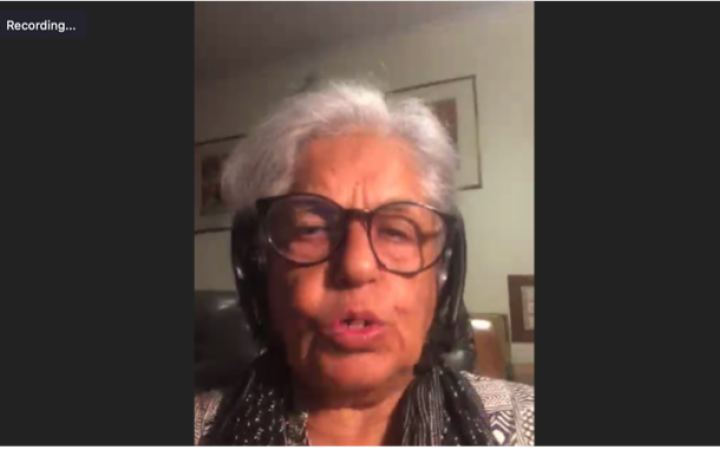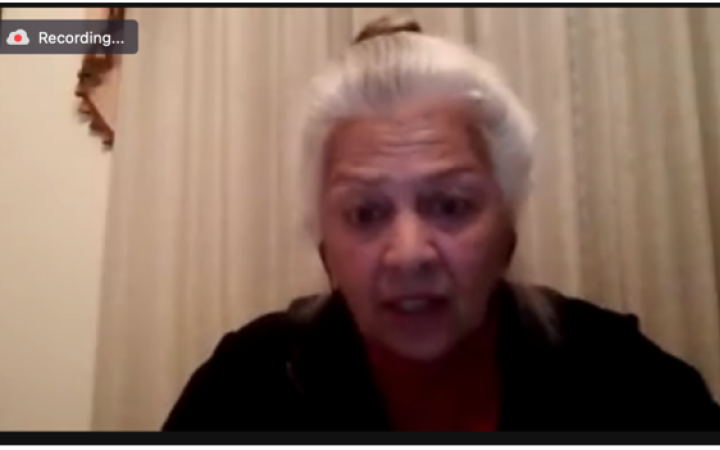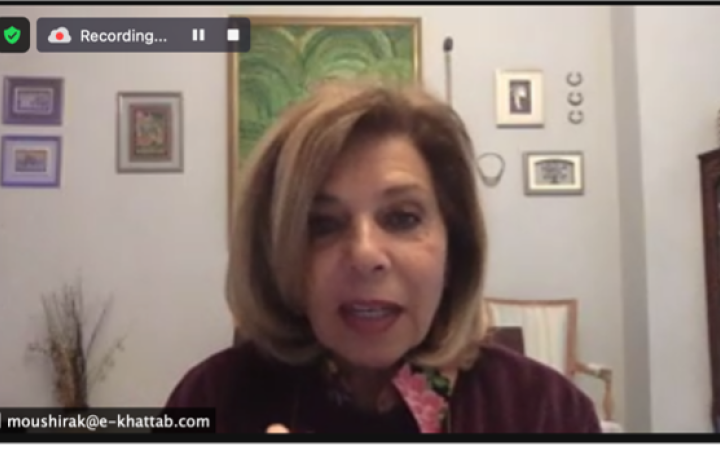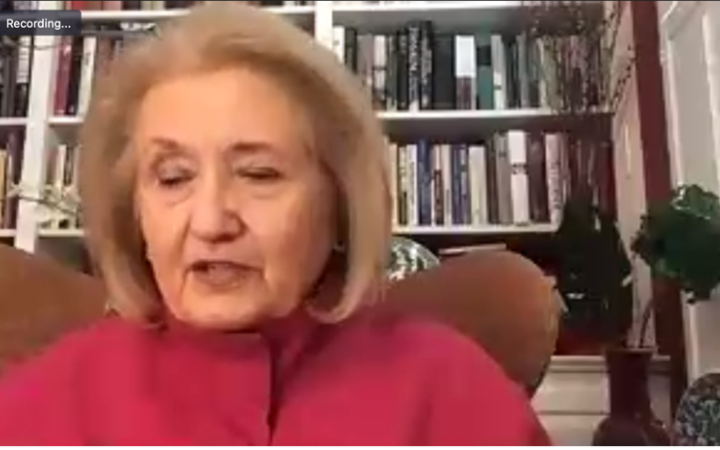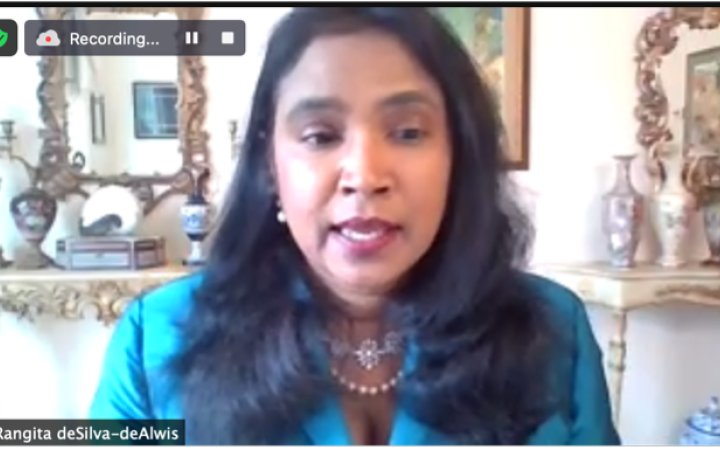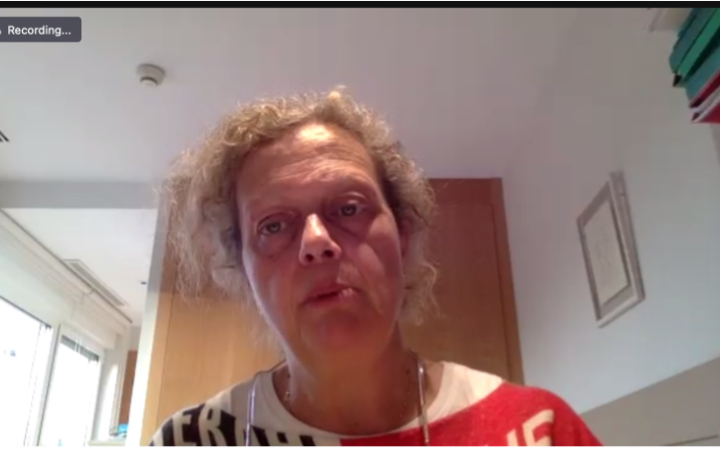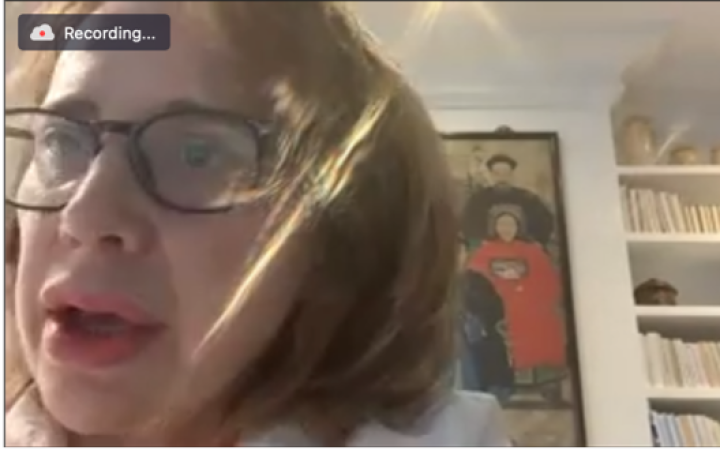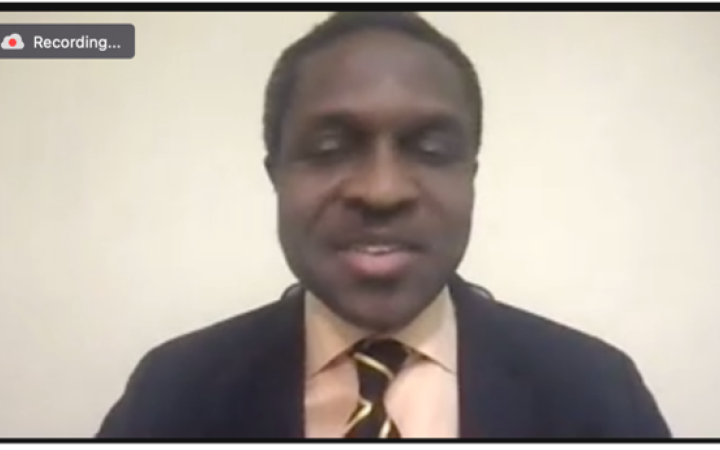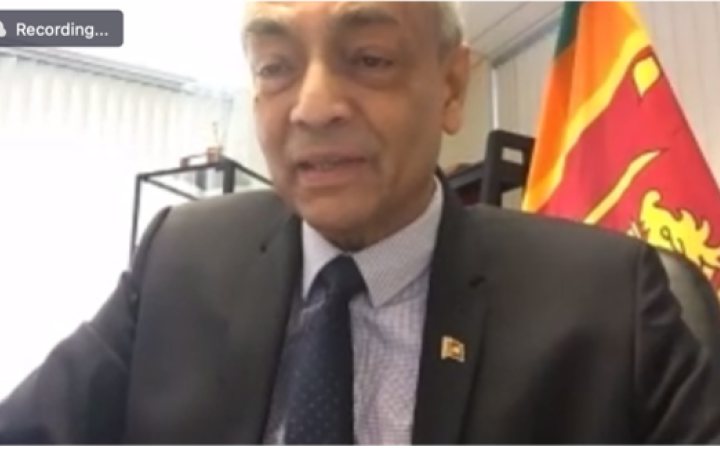1-4 March 2021, New York, USA (Virtual) - The United Nations Institute for Training and Research (UNITAR) New York Office, in partnership with the University of Pennsylvania Carey Law School, successfully implemented its four-day seminar series entitled “Gender Equality in the International Rights Framework: Building Back Better” from 1-4 March 2021. Over 150 participants joined the session virtually from all over the world during the duration of the series. This series was developed to coincide with the beginning of Women’s History Month and discussed various concerns related to gender equality. This series was supported with funding allocated from the Swedish International Development Agency’s (SIDA) contribution to the UNITAR Strategic Framework Fund, under the programme "Leveling The Playing Field", which focuses on the development of the skills and knowledge of Least Developed Countries.
The first day of series was opened by Mr. Marco Suazo, UNITAR NYO Head of Office. He delivered remarks that emphasized the importance of gender equality and, specifically, how the COVID-19 pandemic has highlighted this need more than ever. Mr. Suazo stressed the building back of fundamental rights for women to ensure proper achievement of the Sustainable Development Goals. He then introduced one of the series’ facilitators, Prof. Rangita de Silva de Alwis of the University of Pennsylvania Carey Law School. Prof. de Silva de Alwis thanked participants for their enthusiasm for this topic and spoke of the important moment in history we find ourselves in today. She noted the beginning of Women’s History Month and implored participants to share the untold stories of women during this time. Prof. de Silva de Alwis also illuminated the need to center women and girls in global social movements in order to truly achieve equality.
The series’ co-facilitator, Dr. Paloma Duran y Lalaguna of University Jaume I, then took the floor to introduce the theme of the day’s seminar: The Beijing Platform for Action. Over 20,000 women came together in Beijing for the opening of the Fourth World Conference on Women in September 1995. The conference produced the Beijing Declaration and Platform for Action, the most progressive blueprint ever for advancing women’s rights. Dr. Duran y Lalaguna briefly addressed how the legal component of gender equality is extremely important, but the political side is as well and needs to follow suit. She then introduced the first session’s panelists, Ms. Eva Alcón Soler, President of Jaume I University in Spain and President of Isonomia Foundation, and Ambassador Melanne Verveer, Executive Director of the Georgetown Institute for Women, Peace and Security and former US Ambassador for Global Women’s Issues.
Ms. Alcón Soler spoke about her university’s gender equality action plan, specifically highlighting the impact universities have in the fight for gender equality as educators. She additionally spoke of three challenges that will need to be addressed: breaking the glass ceiling, eliminating gender biases, and promoting healthy work-life balances. Ms. Alcón Soler also mentioned the disproportionate impact of the pandemic on women and recommended closing the digital gender gap to ensure women and girls still have access to education during this international crisis.
Ambassador Verveer then spoke and emphasized that women are held back when they do not have access to power. She additionally acknowledged that women in power are often better able to address crises, as demonstrated during the COVID-19 pandemic by women-led nations. Ambassador Verveer noted the achievements in quality education for women and girls since the Beijing Platform, however also acknowledged the continued fight for true equality. She further highlighted that improved and coordinated education is essential and must center women and girls in the agenda. A brief Q&A session followed, in which the facilitators and panelists discussed how to engage young women in the fight for equal rights. Among the suggestions were to implement gender education in early childhood and mentoring toward positions of power. This concluded the series’ first seminar.
The second day of the series was opened by Mr. Pelayo Alvarez, Programme Coordinator at UNITAR NYO. He thanked participants for returning for the second day, which would focus on the Convention for the Elimination of Discrimination Against Women (CEDAW). Prof. de Silva de Alwis overviewed CEDAW’s core values and explained that all countries but six have ratified the Convention, one of which is the United States. She introduced the panel’s first speaker, Ms. Indira Jaising, former CEDAW Committee member and leading women’s rights lawyer in India. Ms. Jaising spoke of the Indian laws that specifically disallow equality for women and her experiences advocating for the rights of women before the Indian Supreme Court. She emphasized that CEDAW is instrumental in filling in the gaps of local law. Dr. Duran y Lalaguna added that this is the beauty of CEDAW; the same framework can be utilized through different approaches in different areas of the world but can still advance women’s rights.
Dr. Fatima Sbaity Kassem, founding Director of the United Nations Centre for Women at the Economic and Social Commission for Western Asia (ESCWA) in Lebanon, then took the floor to speak about the implementation of CEDAW in her region. Dr. Sbaity Kassem explained that many MENA countries are party to CEDAW, however most have reservations on specific components of the Convention which essentially nullify its broader mission. She stressed the importance of a unified understanding of CEDAW, as well as the need to disseminate CEDAW so women are aware of their rights and can hold their states accountable.
Hon. Moushira Khattab, former Vice-Chair of the UN Committee on the Rights of the Child and former Minister of Family & Population of Egypt, spoke next. Hon. Khattab explained that CEDAW is not popular in the MENA region and is actively perceived as a roadblock to government proceedings. She emphasized the need to bring both religious leaders and the media on board in the fight for equal rights in the region, as these institutions are integral mass educators. Prof. de Silva de Alwis and Dr. Duran y Lalaguna concurred and offered examples of cases in which CEDAW had been invoked to advance the rights of women and girls. This concluded the second seminar of the series.
The third day of the series was again opened by Mr. Alvarez of UNITAR NYO, which focused on Women, Peace and Security. Prof. de Silva de Alwis spoke about the UN Security Council Resolution 1325, which recognized that women were not only victims of war but also agents for peace. She then introduced Ambassador Melanne Verveer, who returned for the third seminar of the series. Ambassador Verveer highlighted that the condition of women and the condition of nations goes hand-in-hand, mentioning the exacerbation of conflict when women are not treated equally. She advocated for the need to specifically address sexual violence as a tool of war and likened this to international conventions on weapons of mass destruction. Ambassador Verveer also mentioned the impact of COVID-19 on women and spoke of the rise in domestic violence, economic dislocation, and rates of lost educational opportunities.
Prof. de Silva de Alwis illuminated the role of the next generation in securing peace and stressed that young women today will be integral in building back for a more peaceful world. She spoke of the localized ways in which women can mobilize their communities, to which Dr. Duran y Lalaguna offered the example of Nigerian women fighting to keep girls safe from Boko Haram. It was emphasized that conflict is often a multidimensional problem that involves the economy, social issues, the environment, religion, history and culture. Dr. Duran y Lalaguna described women as well-suited to address these dimensions. Prof. de Silva de Alwis also explained that women’s participation in conflict resolution will not only secure more peaceful solutions, but also better integrate women’s equality into the result. This concluded the third seminar of the series.
The fourth and final seminar of the series was again opened by Mr. Alvarez of UNITAR NYO and focused on SDG 5: Gender Equality. This was a broader discussion on best practices to achieve gender equality. Dr. Duran y Lalaguna spoke about how the COVID-19 pandemic has negatively impacted the progress made in achieving SDG 5, as women have been disproportionately affected. She introduced the seminar’s panelists, Ms. Ana Maria Salazar, former Vice President of the University Rey Juan Carlos in Spain, and Mr. Tonye Cole, former CEO of Sahara Group and Transformational Leadership Fellow 2020-21 at University of Oxford Blavatnik School of Government.
Ms. Ana Maria Salazar began by explaining that in order to achieve SDG 5, we must explain why it is so important and additionally ensure that men are active alongside women in the fight for equality. She also stressed that education is the key, as is awareness as to what women’s rights are. Ms. Salazar, like other panelists in previous days, mentioned the need to bring religious and local community leaders into the fight as they can effect change from the grassroots level.
Mr. Tonye Cole spoke about the role of men in the achievement of SDG 5. He acknowledged that women have had to be their own advocates for much too long, and that it is now time for men to come to the table as they have the ability to massively advance the agenda. Mr. Cole discussed the need for more female representation at the highest levels of business and entrepreneurship. He additionally mentioned the presence of women in households and the power they have in shaping the mindsets of their children, which will influence future values regarding gender equality.
Prof. de Silva de Alwis then introduced a special guest speaker, H.E. Mr. Peter Mohan Maithri Pieris, Permanent Representative of Sri Lanka to the UN. Mr. Pieris emphasized the necessity of strengthening institutional mechanisms so they are conducive to achieving SDG 5, as well as the work of Sri Lanka in enshrining gender equality policies into national law. He concurred with Mr. Cole in that we must teach these values in early childhood, or else conflicting values may prevail. This concluded the series “Gender Equality in the International Rights Framework: Building Back Better.” Mr. Alvarez, Dr. Duran y Lalaguna and Prof. de Silva de Alwis gave concluding remarks and reminded the future leaders that attended the seminars that it is their duty to build back better in order to ensure gender equality around the world.


